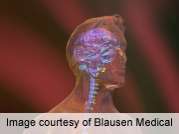FDA: Bacteria found in other products from firm tied to meningitis outbreak

(HealthDay)—Lab tests have found bacteria in two other medical products made by the Massachusetts-based specialty pharmacy at the center of an ongoing fungal meningitis outbreak, U.S. Food and Drug Administration officials said Thursday.
Just how dangerous the various bacteria found in three batches of a steroid used during eye surgery and one batch of a solution used to stop the heart during cardiac surgery might be is not yet clear, FDA officials said in a news release.
However, tests for fungal contamination in both products are pending and FDA officials reiterated their concern about the safety of any medical products made by the New England Compounding Center. Since the meningitis outbreak began, the company has recalled all of its medical products and shut down its manufacturing plant in Framingham, Mass.
FDA officials said several types of bacillus bacteria were found in three lots of preservative-free betamethasone, with each lot producing different culture results, and in a single lot of cardioplegia solution. The bacteria found included Paenibacillus pabuli/amolyticus, Bacillus idriensis, Bacillus flexus, Bacillus simplex, Lysinibacillus sp., Bacillus niabensis, Bacillus circulans, Bacillus lentus, Bacillus halmapalus and Brevibacillus choshinens.
Meanwhile, the state of Massachusetts on Thursday said it has put emergency regulations in place that give the state greater control and scrutiny over specialty pharmacies such as the New England Compounding Center, the Boston Globe reported.
Under the new rules, the state can now track the volume and distribution of drugs made by these pharmacies to see if they should be subject to FDA licensing regulations, the Globe reported. Pharmacies that fail to follow the stricter state regulations will be subject to penalties that include being shut down or quarantined by the state pharmacy board, and specialty pharmacies will also have to report when they are being investigated by another state or federal agency, according to the Globe.
As of Thursday, 28 people have died and 386 have been sickened in the fungal meningitis outbreak, federal health officials said.
Infections have been reported in 19 states. Virginia initially reported three deaths tied to the outbreak, but reduced it to two deaths on Thursday, the U.S. Centers for Disease Control and Prevention reported.
The CDC had the following state-by-state breakdown of cases: Florida: 23 cases, including 3 deaths; Georgia, 1 case; Idaho, 1 case; Illinois, 1 case; Indiana: 48 cases, including 3 deaths; Maryland: 22 cases, including 1 death; Michigan: 106 cases, including 7 deaths; Minnesota: 10 cases; New Hampshire: 11 cases; New Jersey: 18 cases; New York: 1 case; North Carolina: 3 cases, including 1 death; Ohio: 15 cases; Pennsylvania: 1 case; Rhode Island: 2 cases; South Carolina: 1 case; Tennessee: 75 cases, including 11 deaths; Texas: 1 case; Virginia: 46 cases, including 2 deaths.
Nine of the 386 cases involve what the CDC calls "peripheral joint infection," meaning an infection in a knee, hip, shoulder or elbow. These joint infections aren't considered as dangerous as injections near the spine for back pain that have been linked to the potentially fatal meningitis infections.
Meningitis is inflammation of the lining surrounding the brain and spinal cord. The steroid injections are used to treat pain in the lower back as well as joints.
Infected patients have developed a range of symptoms approximately one to four weeks following their injection. People who have had a steroid injection since July, and have any of the following symptoms, should talk to their doctor as soon as possible: worsening headache, fever, sensitivity to light, stiff neck, new weakness or numbness in any part of your body or slurred speech, the CDC said.
The CDC and state health departments estimate that roughly 14,000 patients may have gotten steroid injections from the New England Compounding Center. All of the fungal meningitis patients identified so far were thought to be injected with methylprednisolone acetate, according to the CDC.
Massachusetts officials have begun a criminal investigation into the specialty pharmacy.
Federal investigators said last Friday that a tour of the Framingham plant found foreign, "greenish-black" material in some vials of the injectable steroid suspected as the cause of the illnesses. The contaminated product was one of a host of potential violations discovered during a recent inspection of the New England Compounding Center's plant.
On Wednesday, the U.S. Food and Drug Administration said that a company with the same founders as the New England Compounding Center was voluntarily recalling all of its products.
"Ameridose LLC, based in Westborough, Mass., is voluntarily recalling all of its unexpired products in circulation," the FDA said in a statement.
"The FDA is currently conducting an inspection of Ameridose's facility," the agency said. "Although this inspection is ongoing, the FDA's preliminary findings have raised concerns about a lack of sterility assurance for products produced at and distributed by this facility."
While the FDA said there have been no reports of infections linked to Ameridose products, the agency recommended the recall "out of an abundance of caution."
"Health care professionals and patients may dial the FDA's Drug Information Line at 855-543-DRUG [3784] and press [the star sign] to get the most recent information regarding the Ameridose recall and speak directly to a pharmacist," the agency added.
The New England Compounding Center is what's known as a compounding pharmacy. These pharmacies combine, mix or alter ingredients to create drugs to meet the specific needs of individual patients, according to the FDA. Such customized drugs are frequently required to fill special needs, such as a smaller dose, or the removal of an ingredient that might trigger an allergy in a patient.
Compounding pharmacies aren't subject to the same FDA oversight as regular drug manufacturers are, but some members of Congress now say the meningitis outbreak highlights the need for more regulatory control.
More information: The U.S. National Library of Medicine has more about injections for back pain.
Copyright © 2012 HealthDay. All rights reserved.

















